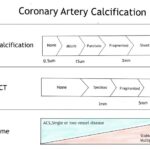Nancy’s health journey took a dramatic turn about 25 years ago when a persistent illness led to significant weight loss, dropping her down to a concerning 90 lbs. It was her daughter who recognized the severity of the situation and insisted Nancy seek immediate medical attention from her family doctor. Initially, the doctor’s response was a prescription for Ensure, aimed at weight gain, rather than investigating the underlying cause of Nancy’s sickness, diarrhea, and weight loss. Frustrated by the lack of diagnostic inquiry, Nancy and her daughter took matters into their own hands, going to the hospital and demanding admission for thorough testing. Within just hours, the medical team identified the root of Nancy’s suffering: celiac disease, coupled with a high degree of sensitivity.
This swift diagnosis was critical, as Nancy’s daughter Kim recounted, “The emergency room doctor stated that she wouldn’t have lasted a few more days if she hadn’t been diagnosed.” This pivotal moment marked the beginning of Nancy’s life with a celiac diagnosis, a condition requiring a strict gluten-free lifestyle.
Fast forward 25 years, and Nancy, now 90, made the decision to move into a nursing care home, embracing the next chapter of her life. For the first three years, Nancy adapted well to her new environment, with no complaints regarding the food or her health. However, an unforeseen accident disrupted this period of stability. While enjoying a walk in the garden, Nancy suffered a fall, resulting in a fractured pelvis. This injury confined her to bed, and consequently, she began taking her lunch and dinner in her room daily. Her meals were brought to her by an attendant. It was during this time that a distressing pattern emerged: Nancy started experiencing severe diarrhea every day, often before bed and throughout the night. The increased need for diapers and change pads became a regular concern for her caregivers.
Driven by concern, Nancy’s family began to scrutinize the nursing home menu. They discovered a significant change: the menu no longer indicated gluten-free or celiac-friendly options. Upon raising this issue with the Director, they were informed of a recent change in kitchen staff. A new chef had been hired to replace the previous one, who had been temporarily filling the role. Once Nancy was able to use a wheelchair to go to the dining room for meals again in mid-July, she faced a new challenge. At each meal, she had to inquire about gluten-free choices, often finding herself limited to salmon, vegetables, and applesauce for dessert.
The difficulties surrounding food and dietary needs became a major source of stress for Nancy. As her daughter Kim explained, “The whole food issue caused Nancy much stress as she accepts diarrhea as a daily thing now and is very embarrassed. The stress has caused her to have high blood pressure and is now on a low dose of blood pressure medication.” This highlights the significant impact that managing a gluten-free diet in a care facility can have on a celiac patient’s overall well-being, extending beyond physical symptoms to emotional and psychological health.
In early November, there was a glimmer of improvement. “Early November and for the past month, they seem to have made some adjustments, however; we still have no response from the Director on a follow up meeting request nor the head nurse reached out to us. After complaints, the gluten-free notations are finally back on the menu. The new chef is thankfully aware of celiac disease. The origin of the original gluten contamination was never investigated or found,” Kim and her sister Chris, Nancy’s daughters, shared. While the re-introduction of gluten-free menu notations and a celiac-aware chef were positive steps, the lack of communication from management and the unresolved issue of the initial gluten contamination remained concerning to Nancy’s family. Nancy’s story serves as a powerful reminder of the critical importance of accurate and timely celiac diagnosis, and the ongoing need for vigilance and advocacy to ensure safe and appropriate care for individuals with celiac disease, especially in assisted living and healthcare settings.
